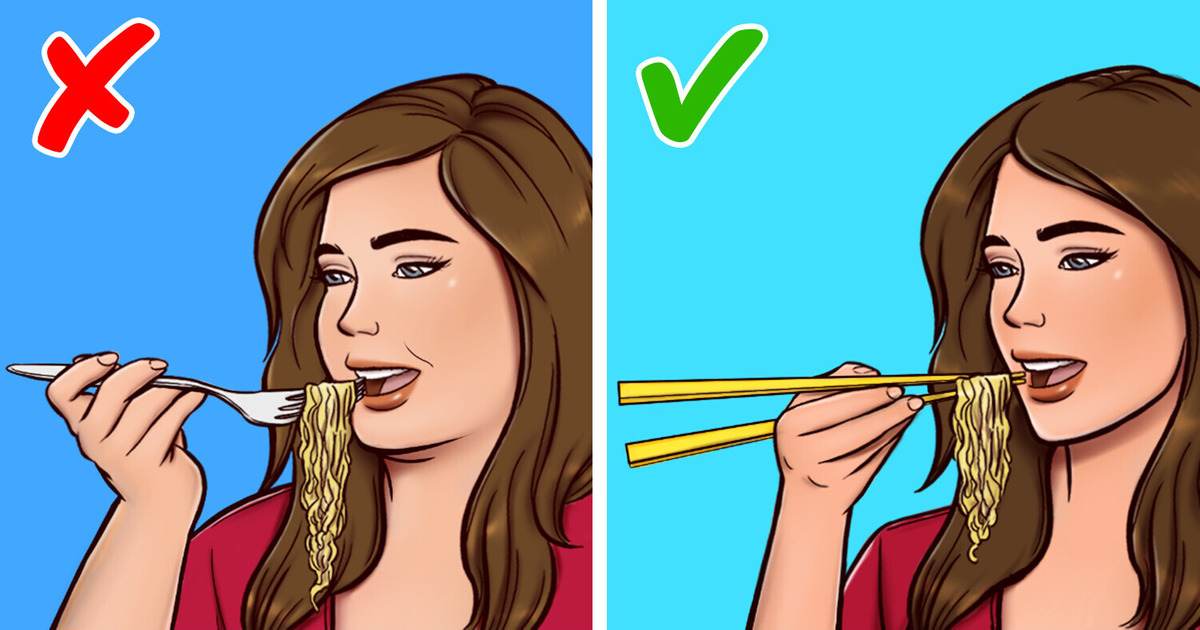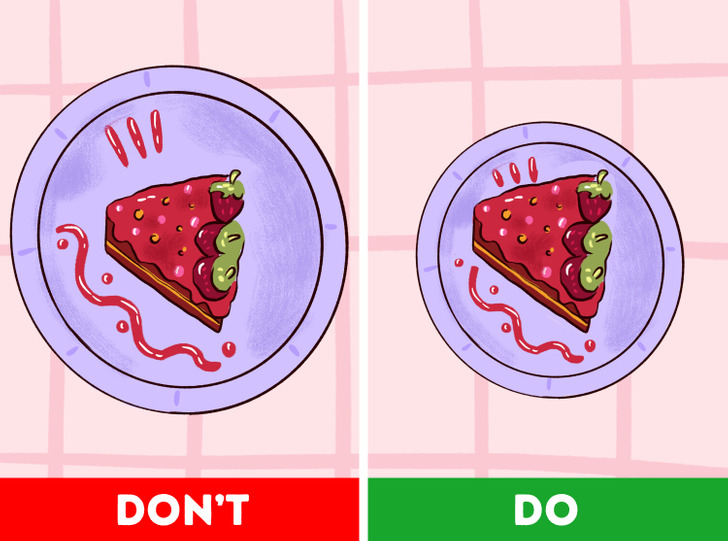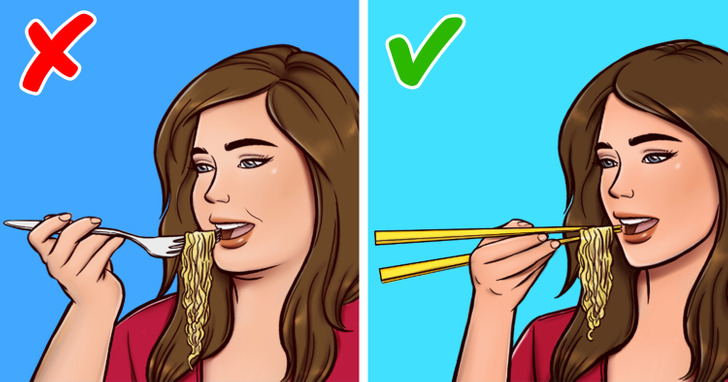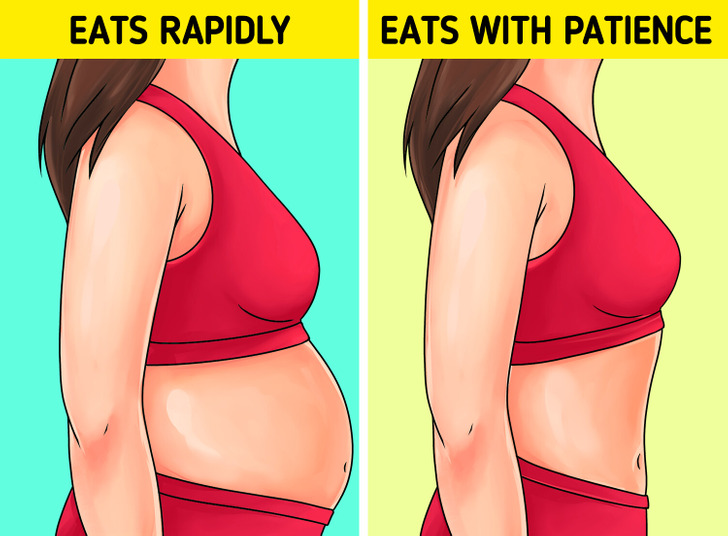14 Parents That Raised Their Children Right and Now They Feel Proud


Mindfulness refers to the action of being present in the moment while turning on all your senses to fully understand what is happening. Mindful eating encompasses the same process, helping people control their portions so they don’t overeat. If you have trouble limiting your food intake and lose control, these 7 tips can help you put a stop to overeating.
Oftentimes, we tend to add too much food to our plates. This is especially when we haven’t eaten for hours, and we get to the starvation point. However, we don’t need as much food as we think to feel okay. So, before filling your massive plate up to the brim, add a small portion and give it some time before you go for a refill.
This practice will prevent you from overeating or throwing away food you didn’t manage to eat.

If you over-serve, it’s very likely that you’ll also overeat. Shockingly, in this research, even the nutrition experts served 31% more without being aware of it when given a larger plate to eat off of. Apparently, it’s the distance to the border of the plate that makes you decide on what a proper portion is, instead of the amount of food itself. So you’d better buy some more small plates!
Do you want to watch something on the TV or your phone while eating? Unfortunately, this is a habit many of us are guilty of. The reason it is bad is because by distracting your mind, you also avoid receiving the messages it sends to your body that your stomach is full. Therefore, you keep eating until you feel like you’re going to explode.
Mindful eating requires us to connect to our plates and notice how much we eat and how our body feels. So, turn off your screens and look at your plate while you’re eating.
It may sound useless, but mindful eating has a lot to do with appreciating the food you’re consuming. We may not be hunters or grow our own vegetables but take a look for a moment. What do you have on your plate, and how did it end there? Other people worked hard to produce your ingredients, and you also put in the effort to cook them.
Also, try to identify all the flavors and seasonings. Be appreciative of what you have in front of you. This way, you will hesitate to throw away the leftovers you didn’t eat because your portion was massive.
This is connected with the previous point, as you pause any external signals and turn on all your senses. Have you ever really noticed all the unique spices and how they mesh with each other? Some foods are crunchy, and others are soft. Pay attention to their texture and how it makes you feel.
How about smelling your food? Mindful eating requires this sense to be present as well. You perceive food as delicious not only with your taste but also with your smell.

When we’re hungry, we tend to take gargantuan bites to satisfy our hunger. However, this practice doesn’t allow us to enjoy the food or wait until our brain sends a message to our stomachs that we are full. Therefore, we overeat until our stomachs start to complain.
To avoid this and practice mindful eating, simply put your fork down between bites, whether you chew slowly or fast. Chances are you will eat half the amount of food this way.
Many people think that by skipping certain meals, they increase the possibility of eating less. This notion is false, and it might lead you to overeating due to extreme hunger. So, eat regular meals and snacks to feel satiated during the day without having the need to consume large portions. Remember that when we feel extremely hungry, we tend to make bad food choices, too.
Therefore, not only do we eat more than we should, but we also eat in a very unhealthy manner.

This is one of the biggest challenges for many of us. How can we eat slowly when our lives are so fast-paced, and we must finish our lunch and get back to work within a few minutes? It’s a problem, we know, but not without a solution. You don’t need 30 minutes to enjoy your food at a slow pace.
If you eat with other people next to you, simply avoid discussions for at least 5 minutes and focus on your food. If you start practicing previous mindful eating practices, this one will be a piece of cake.
Did you know that eating with chopsticks has an array of benefits for your health and overeating patterns? Mindful eating is a process that takes time and a lot of effort to achieve, and chopsticks may actually be a great assistance.











